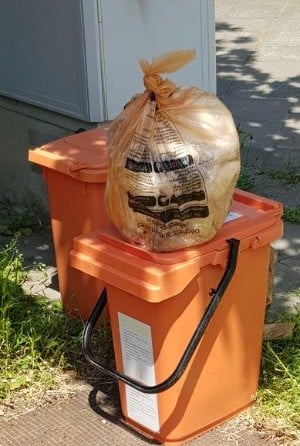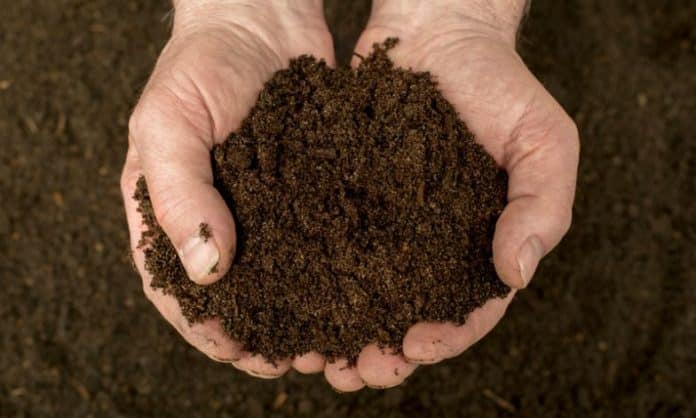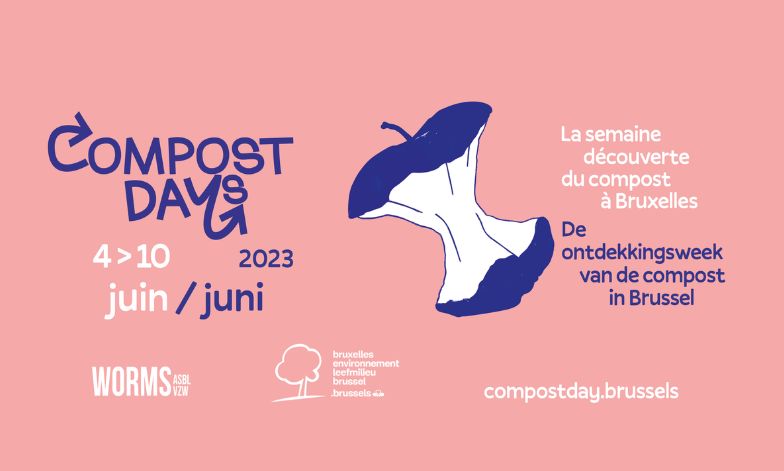Each year, the world experiences a loss or waste of 1.3 billion tonnes of food. Although this issue spans the entire food system, individuals and households are not helpless. With nearly 570 million tonnes of food wasted at home, their actions are crucial.

In Brussels, as of 15 May, new rules make the use of orange bin bags for organic waste mandatory throughout the city. This initiative aims to significantly reduce the food waste, accounting for around 40% of the content, in unsorted white bags. In 2021, Brussels incinerated 500,000 tonnes of unsorted waste, equivalent to 200 times the Atomium’s weight. The carbon dioxide emitted during this process was equal to that of 145,000 cars. However, properly sorted food waste can be repurposed into renewable energy through biomethanation or compost via composting – key resources for climate transition.
Residents of Brussels have three solutions to sort their food waste: using orange bags, employing individual compost, or utilising one of the 200 community composts. The orange bag can hold leftovers, peelings, expired food (without packaging), coffee grounds, tea bags, kitchen towels, tissues, and paper napkins. However, certain items are excluded, such as bones, shells, pits, litters, wood ash, diapers, compostable and biodegradable packaging, and frying oils.
Compost Discovery Week (4-10 June)
Set for June 4-10, ‘Compost Day’, or Compost Discovery Week, offers a unique insight into the practice of composting. The City of Brussels is advocating the use of individual and community composting methods to minimise and repurpose household waste. With each inhabitant discarding an average of 19 kg of food annually, there is a wealth of untapped potential in what is currently considered waste. Organic refuse such as tea bags, fruit peels, and vegetable scraps can be converted into valuable compost – a ‘green gold’ that enriches trees, vegetable gardens, and plants.
Besides its environmental benefits, composting cultivates community bonds. Neighbourhood composting schemes bring residents together around a shared goal, fostering a strong community spirit.
For those curious about the ins and outs of composting, the Brussels Compost Discovery Week promises to answer all your questions. The event aims to highlight the city’s composting initiatives and underscores the simplicity of the composting process – an easy, environmentally-friendly activity that everyone can embrace.
The benefits of composting are manifold. It reduces dependence on chemical fertilizers, improves soil fertility, enhances water retention, and supplies nutrients to plants. By reducing food waste, it also curtails greenhouse gas emissions that contribute to climate change. Composting practices align with several Sustainable Development Goals and help reduce emissions from our food system.
Additional information:
Marking the start of World Environment Day, this is the first in a series of stories and initiatives in the run-up to the International Day of Awareness of Food Loss and Waste on 29 September.
The goal of the observance is to raise awareness of the importance of the problem and its possible solutions at all levels, and to promote global efforts and collective action towards meeting Sustainable Development Goal Target 12.3, which calls for halving per-capita global food waste at the retail and consumer levels and reducing food losses along production and supply chains.
Other links:


